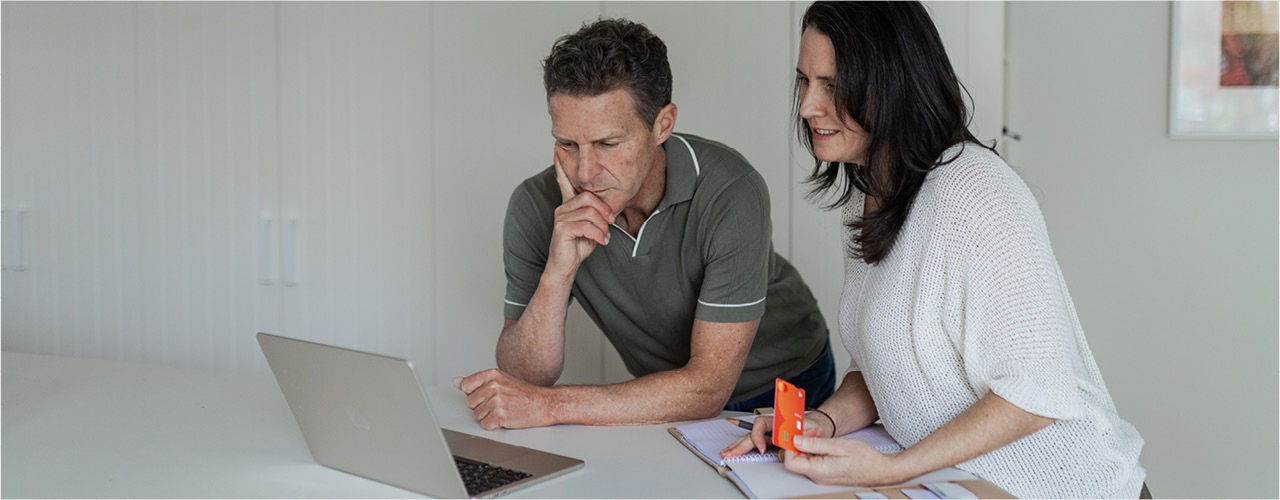Scam activity has continued to rise in recent years. Scams are getting more advanced and targeting more Australians in more ways. One of the most common methods of scam exposure is via phone call. According to ABS Personal Fraud data, 48% of exposures to scams occurred over the phone. At Bendigo Bank, we’re here to support you in staying safe from scams, and helping you to identify when something isn’t right.
Should you use your credit or debit card over the phone?
It’s wise to be cautious when handing out any personal information over the phone, whether that’s your name and address, or your credit card information. Using your credit or debit card over the phone may increase your risk of becoming the victim of a scam. If your card details end up in the hands of a scammer, your money can be at risk very quickly.
But sometimes using your card over the phone is necessary. Paying via card over the phone can be perfectly legitimate. For example:
- If you’re making an invoice payment or transacting between small businesses;
- Dealing with a venue that requires a security deposit or prepayment;
- Or even dealing directly with a billing department over a specific billing issue.
How to minimise risk when using your card over the phone
Here are some important things to remember when sharing your card details over the phone:
Only provide card information if you initiated the call. Never give out card details to someone who called you, even if you’re almost certain it’s a legitimate request. Always ask if you can call back, either directly or by being reconnected to the right department. If the caller expresses resistance to your request, it could be a sign they’re a scammer.
- Take steps to independently confirm legitimacy. Before you give out your card details over the phone, take steps to verify that you’re speaking with a legitimate business or provider, and whether over the phone card payment is a legitimate request. Sometimes a quick Google search can alert you to new scam.
- Check whether you really need to pay over the phone. Ask if there are alternative ways to pay. Vigilance around scams is much more common than it used to be. So many businesses will understand if you’re not comfortable paying over the phone and may offer alternative methods of payment.
- Never provide your passcode. When making a payment over the phone, you will never be required to read out a one-time passcode that has been sent to your phone or email. If you are asked for this information, this is an indication that it is a scam.
What to do if you suspect you have engaged with a scammer
As soon as you discover something isn’t right, limit your card usage using card controls in the Bendigo Bank app or via e-banking. You can limit further transactions on your card or block it completely. Then, contact us immediately on 1300 236 344. The sooner you contact us, the sooner we can take steps to protect your accounts.
Discover more information on protecting yourself from scams.
Remember to Stop, Think and Protect
Stop – before you make a quick decision, stop. Could this be a scam? Scammers benefit from rushed decision making.
Think – what are the red flags here? Why have I been contacted? How can I verify this is legitimate?
Protect – act quickly if something feels wrong. Contact your bank for support if you’re transferred funds. Report the scam to Scamwatch.






